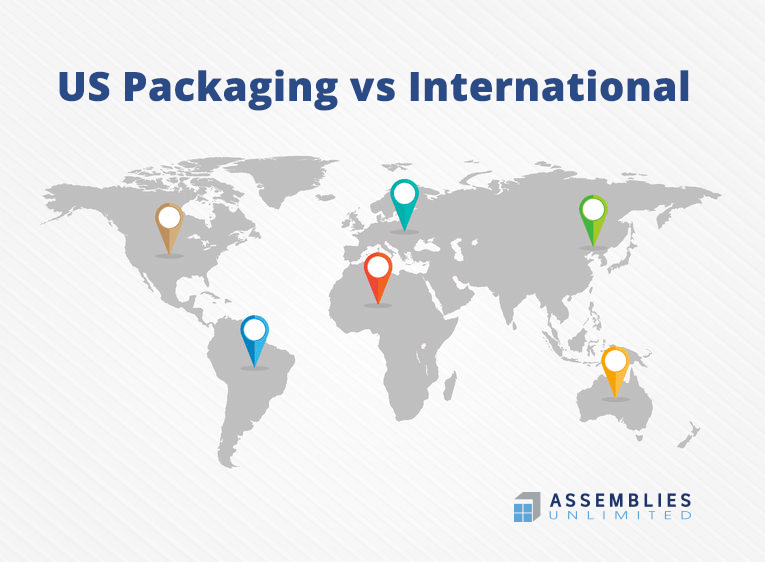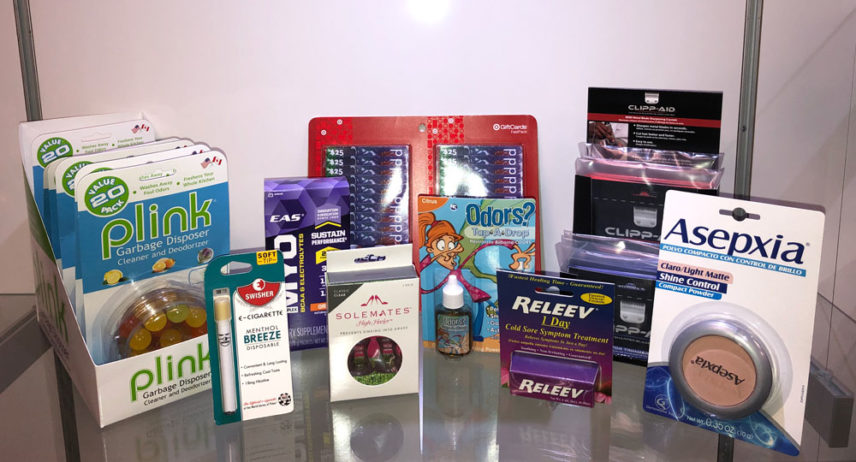 Consumer markets are increasingly global, so companies responsible for producing, packaging, and distributing goods have different concerns than they once did. International distribution networks, for example, often bring several versions of the same product to store shelves in multiple regions, creating language and cultural considerations for sellers and their packaging partners. In addition, regulations and codes are also different worldwide, so manufacturers, packagers, and logistics professionals must account for legal requirements wherever they operate.
Consumer markets are increasingly global, so companies responsible for producing, packaging, and distributing goods have different concerns than they once did. International distribution networks, for example, often bring several versions of the same product to store shelves in multiple regions, creating language and cultural considerations for sellers and their packaging partners. In addition, regulations and codes are also different worldwide, so manufacturers, packagers, and logistics professionals must account for legal requirements wherever they operate.
Even traditionally challenging markets are now home to more significant opportunities. As global sales channels evolve, producers, wholesalers, packaging professionals, and others engaged in the consumer cycle adapt to changing conditions. For companies breaking into new markets, the best way to establish and maintain an international presence is to partner with an experienced, nationally recognized contract packaging provider.
Contract Packaging Solutions
If you are in the manufacturing or food production business, product packaging is familiar territory, prompting a fundamental question.
Is it best for my organization to fulfill packaging needs in-house, with my own staff and equipment, or is the job better left to a professional contract packager capable of advancing our sales mission?
The question looms, especially when consumer goods are bound for brick-and-mortar retail locations. The reason is that, on store shelves, packaging adds tremendous value in terms of marketing and passive selling power. And though multichannel retailing is well-established and growing, physical store locations play vital roles for major retailers.
Many manufacturers weigh the benefits of working with USA-based turnkey contract packaging companies. For some, abandoning in-house operations moves them closer to the front lines, enabling greater variety and efficiency for packaging operations. Other companies streamline packaging capabilities to save money, freeing capital for investment elsewhere within their organizations.
The following advantages are only a few benefits of contracting an experienced national packaging provider:
Efficient Distribution Cycle
The supply chain moves through various stages, guiding consumer goods from pre-production through manufacturing and ultimately to the hands of end-users. Consistent success relies on a tight transition between process phases, resulting in smooth supply flow and uninterrupted access to consumer goods. Delays and deficiencies at any stage can result in substantial losses from spoilage, missed sales opportunities, and other adverse outcomes.
Top national packaging firms maintain international distribution networks, enabling them to coordinate across geographical zones separated by thousands of kilometers. Using global experience and partnerships with regional logistics specialists, well-versed packaging suppliers efficiently manage timetables set forth by producers.
Compliance and Certification
National packaging companies maintain a high level of international acceptance. Whether meeting production standards for sustainability or adopting voluntary food-handling oversight, domestic providers are prepared to keep projects moving without interruption. Top packaging companies seek additional training and certifications from outside agencies, establishing universal global standards above and beyond those imposed by governments and regulatory agencies.
Food handlers, in particular, must meet local standards, so the best United States packagers strive toward scientifically proven best practices, regardless of where they do business. For SQF programs and other self-inspired initiatives, USA-based packaging companies submit to voluntary testing, which evaluates processes, practices, packaging facilities, and equipment.
Access to Markets
The United States represents a massive economy, accounting for a large share of the world’s affluence. Partnering with a proficient U.S. packaging provider offers access to markets otherwise unavailable. Packaging companies don’t govern import and export policies, but United States providers bring unparalleled experience to the industry. In addition to in-house expertise in marketing, merchandising, branding, and other consumer specialties, top American packaging companies maintain relationships with designers and other key sub-contractors.
Materials and Technology
American innovation pushes the envelope for those seeking creative packaging solutions. As materials advance, creating new design options for packaging liquids, gels, and solids, the most successful packaging partners embrace expanding possibilities.
For example, better technologies in packaging supply chains provide protection and maintain product integrity, allowing packagers to use flexible materials in roles once reserved for rigid containers. With cutting-edge machinery and methods, materials advances create a competitive edge for producers tied to American packaging firms.
USA Packaging Partners Offer a Longer Reach
Companies with global aspirations must respond to a complex set of influences governing the sales of their products worldwide. To establish an extended reach, expanding operations must account for logistics, compliance, and other region-specific concerns.
Rather than expecting one-size-fits-all acceptance from international buyers, the most successful international sellers partner with packaging providers familiar with diverse, global projects.
The spread of consumerism has already reached regions once left untapped. Global communications and increased logistical efficiency are partially responsible, encompassing the efforts of international producers and their North American packaging partners.
India, for instance, shows signs of consumer growth, especially in technology-related areas. Not surprisingly, India’s residents are quickly digitizing, and discretionary spending continues to rise. Closer to home, U.S. packagers are experienced with the United States-Mexico-Canada Agreement, facilitating more balanced, reciprocal trade supporting high-paying jobs for Americans and growing the North American economy. Experienced contractors source raw materials and supplies from neighboring countries, ultimately streamlining the flow of finished goods between regions.
Contract Packagers Provide Services and Supplies
While there is no single cookie-cutter solution for product packaging, turnkey contract packaging providers are skilled at dialing-in strategies to further specific retail marketing objectives and enhance branding opportunities. The spectrum of packaging needs is broad, so available alternatives address small-scale efforts, requiring limited packaging supplies, production runs, and high-volume custom packaging initiatives accommodating hundreds of thousands of units.

Packaging efficiency is achieved by matching primary and secondary packaging to the products contained within. Transportation, freight, and storage costs are minimized when products are adequately matched with appropriately sized enclosures. Manufacturers and wholesalers weigh product packaging considerations with an eye toward the economy, merchandising impact, and logistical cost-effectiveness. For some, it is prudent to maintain inventories of packaging supplies in-house, while others are best served by turnkey contract packaging arrangements providing custom assembly and fulfillment.
Packaging Service Options
In many cases, products themselves define essential packaging strategies. The required protection level, for example, dictates which enclosure types are appropriate. Size and weight are key product features, helping guide packaging choices and the precise dimensions of individual units. The primary path each product will take to its end-user also provides insight into suitable packaging approaches. Shipper-friendly alternatives speak to those companies marketing products that will never see store shelves, while graphics-laden retail options are chosen for their point-of-sale impact.
Standard contract packaging services include blister packaging, pouching for liquid and dry goods, clamshell packaging, other turnkey approaches, and partial assembly and fulfillment services. Outsourcing makes sense when jobs are complex or involve processes that cannot be efficiently completed in-house. Established contractors offer flexibility and provide the expertise required to guide jobs from start to finish.
Consistent access to high-quality, low-cost packaging supplies allows companies and individuals to manage various distribution aspects using their facilities and resources. Hand assembly and box filling, for example, are achieved on-site for companies employing sufficient manpower to accomplish the tasks, and these secondary packaging services are best served locally.
In Conclusion
Growth opportunities and emerging markets draw manufacturers and distributors to diverse regions. In order to hit the ground running, successful operations lean on experienced national packaging companies to ease their transition to unfamiliar markets. American packagers’ international packaging exposure and familiarity with the global supply chain bring added value to contracts, so the best choice for international producers is to partner with an established U.S. firm.
At Assemblies Unlimited, we’re incredibly well-positioned with a national packaging-plant footprint, ready to handle any packaging project. Please complete our request for quote form or give us a call to reach a packaging specialist to discuss your project.
